
Engagement: Culture engages people in cities on climate
When C-Change started, there were lots of great examples of how Manchester’s arts and culture sector were engaging with people in the city on climate.
In the early days of C-Change representatives from the partner cities learnt in particular about two key engagement measures:
Climate Lab was an experimental programme to test different ways to engage Manchester stakeholders’ in developing the city’s climate change strategy. The programme ran in 2016 as part of Manchester’s European City of Science activities, with over 30 partners, coordinated by Manchester Climate Change Agency. Combining a range of non-traditional means of engagement, alongside some of the more tried-and-tested techniques, it reached approximately 100,000 people. Arts and culture-based activities were particularly popular. One highlight was Manchester Museum’s Climate Control, a six-month long series of exhibitions and events exploring what kind of future people hope for and how to make it a reality, including opportunities to rebuild a model Manchester.
Season for Change is a UK-wide cultural programme inspiring urgent and inclusive action on climate change. The first season was held in 2019, a relatively simple but effective idea of providing a platform and an umbrella for arts and culture sector, events, exhibitions, performances etc. addressing climate change and environmental themes. A second season is now running in 2021 in the run-up to COP26.
All C-Change cities went on to undertake a wide range of creative and inspiring engagement of arts and culture.
Each city ran a pilot action programme, providing micro-grants to selected actions. A lot was achieved with very modest sums - €5-€15,000 per city – with 23 pilot actions engaging tens of thousands of people across the six cities. Actions included:
a chamber orchestra’s music workshops with children using recycled instruments in Mantova
a city library’s DIY urban wildlife campaign in Wrocław
a children’s theatre performance done in association with a local ‘plastic-free’ campaign in Šibenik
an audience engagement campaign by Szeniale, an independent arts festival in Gelsenkirchen
a story-telling astronaut and children’s performance exploring the idea of connection and love for our planet – the children who took part received their own Agent of Change medal made from cork
a climate change mythbusting pop-up installation for outdoor events in Manchester
Despite Covid, some cities also managed to do their own C-Change festivals or seasons:
Šibenik C-Change Festival 2020: 30 days, 10 events from environmental art exhibitions to a new installation on sea-level rise and a street mural created with children on water protection
Mantova C-Change Season 2020: one summer, six events, from a children’s radio programme on climate change to a carbon visualisation installation
Wrocław C-Change Festival 2021: three weeks, 11 events, from ‘Earthling’ an online theatre performance to gallery family workshops on waste
Mantova will be doing a C-Change festival later in 2021, and both Mantova and Šibenik are planning to make their festivals an annual event.
Watch: C-Change focusing on Engagement
Find out more about C-Change activities in Šibenik
What we’ve learnt
Engagement activities can be really valuable.
Not only in terms of raising awareness and mobilising action, but also as a way of building city-sector collaboration around a common purpose. For the sector having city support in co-ordinating and communicating events and activities can also be incredibly valuable.
Let the sector do its thing.
As a city provide a framework or context on your climate and environmental priorities are and some financial or practical support, but otherwise do not be prescriptive, allow for freedom and creativity.
Engagement opportunities on climate and social justice.
While climate and social justice were not explicit aims at the start, some of the C-Change engagement activities provided opportunities for engaging with people who wouldn’t normally engage on climate action e.g. children in disadvantaged neighbourhoods.
Benefits of building in monitoring and evaluation.
Monitoring and evaluation do not tend to be a strength of arts and cultural organisations. This is an area where cities can help, in particular if activities are supported with public money: both keeping track of engagement activities and events, participants etc. and building in some element of evaluation from the start.
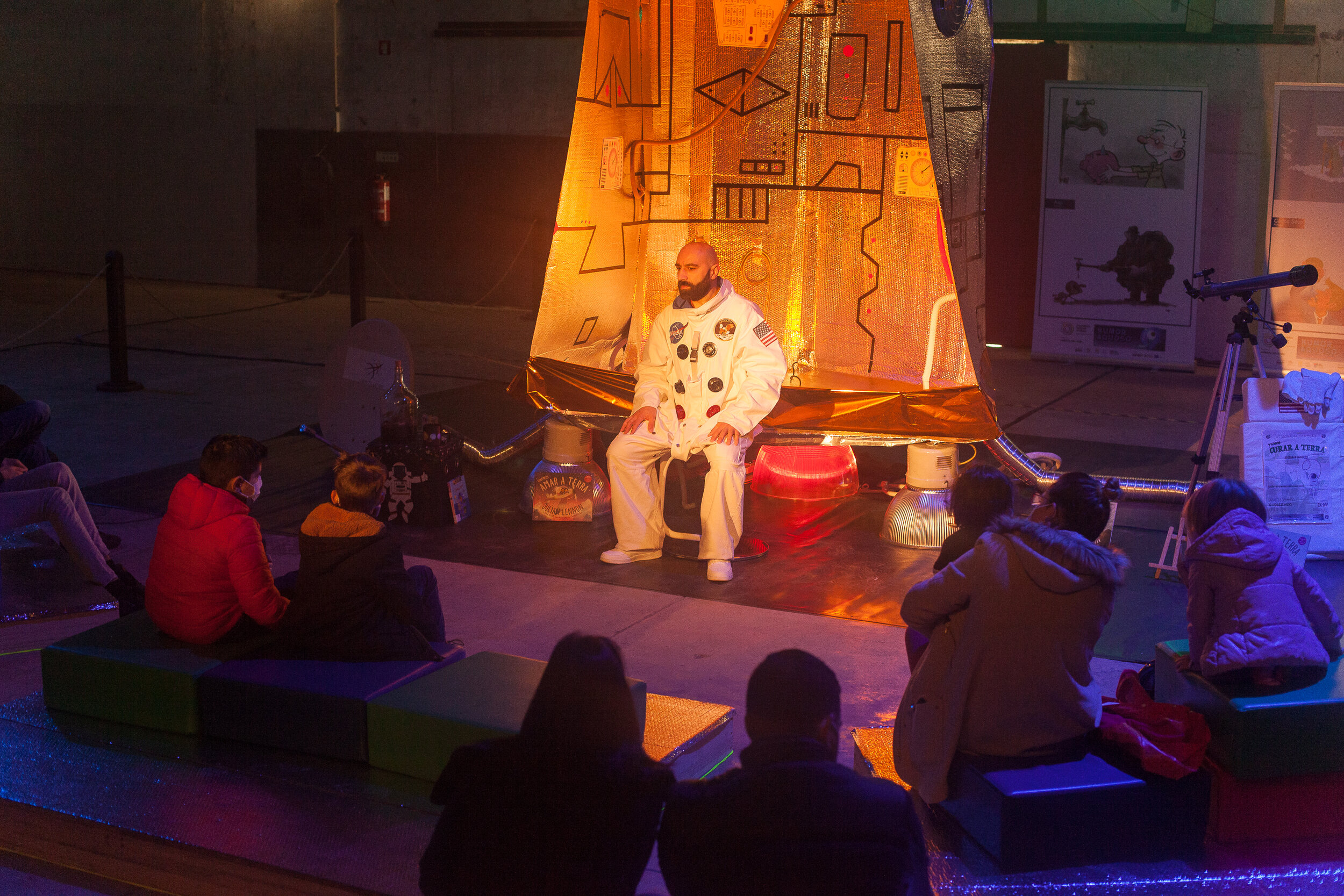
Projeto Circular pilot action Águeda
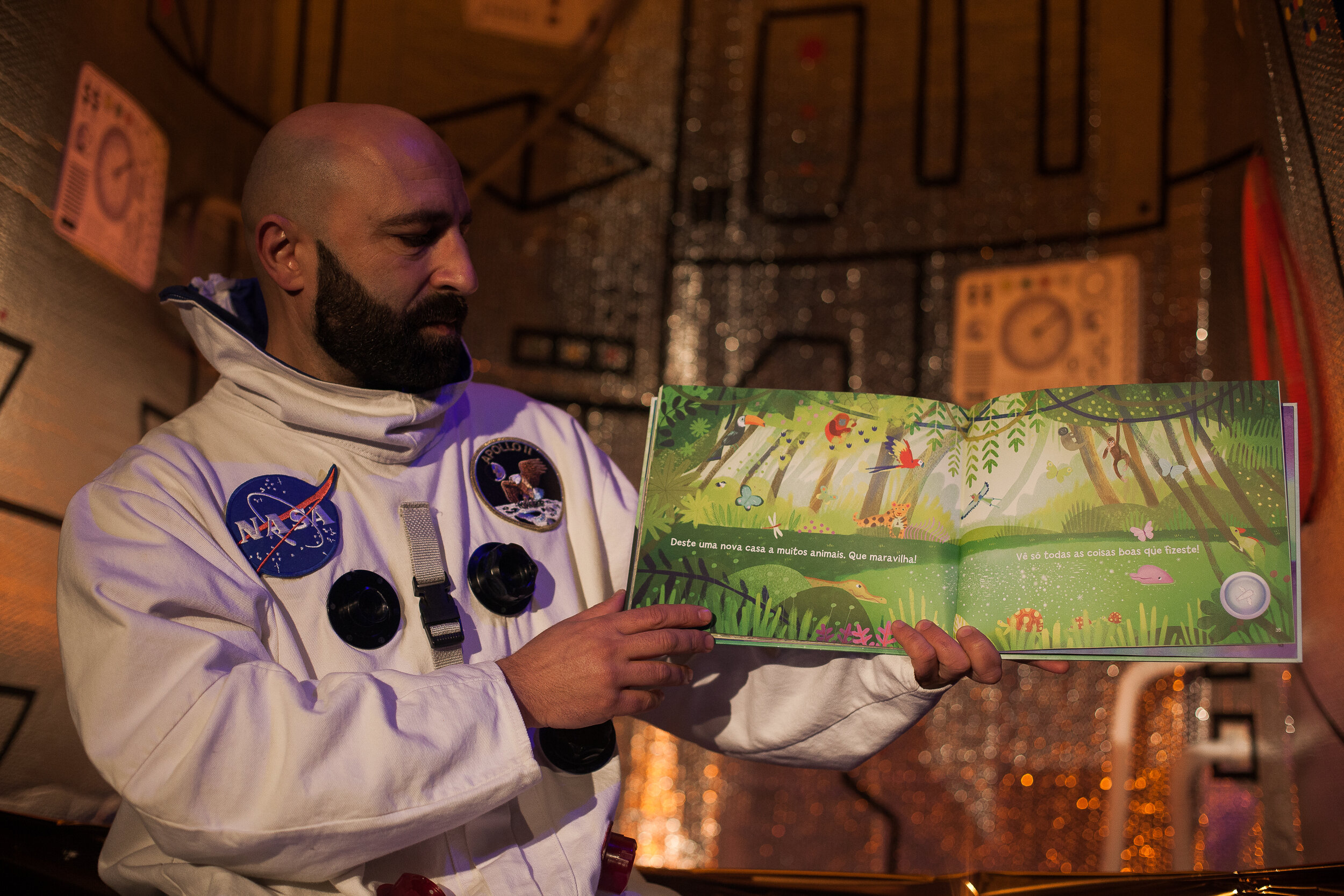
Projeto Circular pilot action Águeda

The Sea Starts Here, C-Change urban art installation Águeda
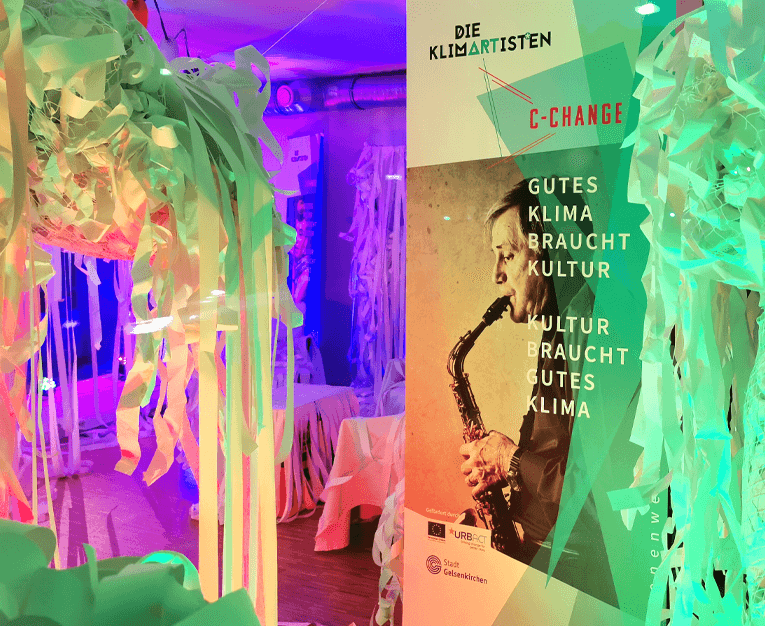
Make a Change 2020 – a Gelsenkirchen C-Change pilot action - (Screenshot @ CCI)

Promotional materials for Šibenik’s C-Change festival
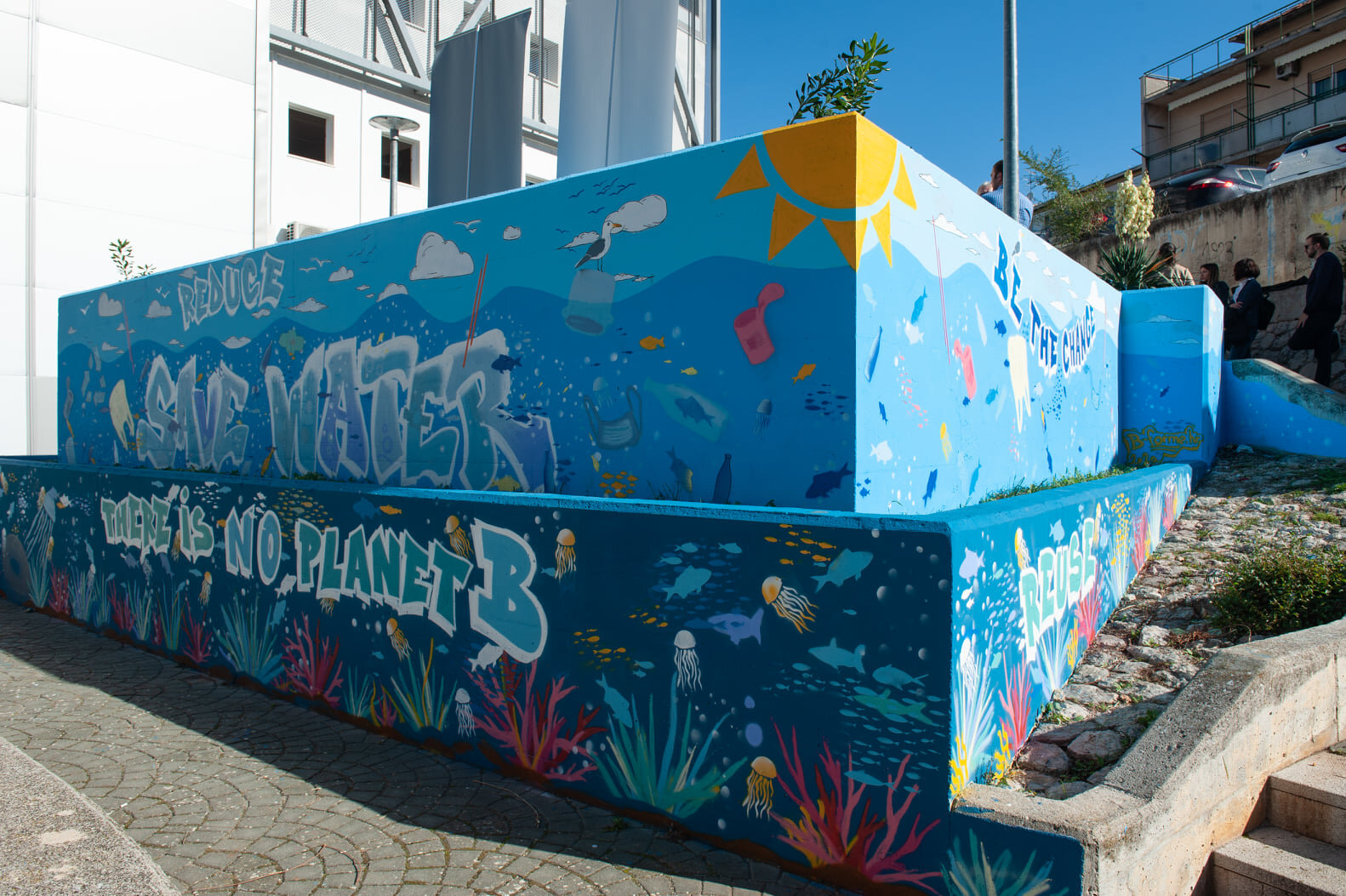
Šibenik urban street installation launched during the C-Change festival
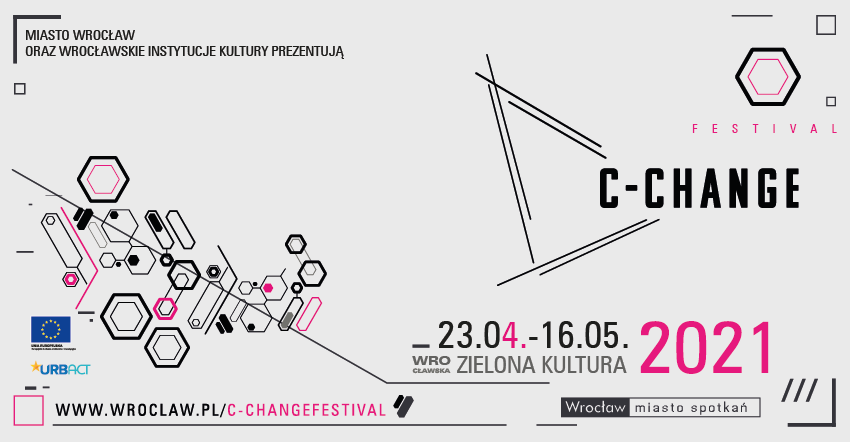
Wrocław C-Change festival flyer
Explore the C-Change Cities








